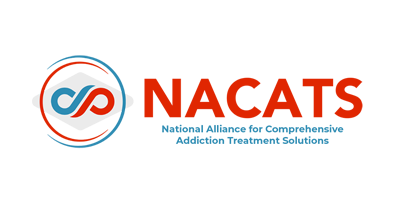Opioid use disorder affects many people. In 2018, it was reported that over 1,300 overdose deaths in Tennessee were due to opioid misuse. How do we lower the rate? By being open about opioid misuse and learning about all treatment options, such as those offered by ReVIDA Recovery®.
What Is Heroin?
Heroin is one of the most well-known opioids in our society, but not many people know what it looks like. Heroin can be a white powder, but it also comes in the form of a sticky, black substance (“black tar” heroin) or as a brown powder. Originating from morphine, heroin is an opioid that binds with and activates the body’s opioid receptors, the receptors that are typically involved in feelings of pleasure and pain.

The Scope of Heroin Misuse
The opioid crisis has affected all of America, with heroin being identified as one of the most common substances being misused. This is nationwide, but it also affects Tennessee statewide as well. Approximately 70,000 people in Tennessee are addicted to opioids, with over 2,300 exclusively being addicted to heroin. Heroin addiction treatment is needed now more than ever with the opioid crisis reaching epidemic levels.
Short-Term Effects
Heroin produces a feeling of extreme happiness called a “rush.” The other short-term effects commonly associated with taking heroin are:
- Nausea and vomiting
- Heavy feeling in legs and arms
- Dry mouth
- Warm flushing of the skin
Long-Term Effects
Heroin dependence can lead to serious organ damage. The contents of heroin can clog blood vessels that lead to the kidneys, as well as the lungs and the brain. This can cause permanent damage to these organs.
Heroin is a substance that is usually taken intravenously (needle into the arm), and some people share their needles. Because of this, people taking heroin are much more at risk for illnesses such as HIV and hepatitis.
How Do I Get Treatment?
There are a variety of heroin addiction treatments. Everyone is different, which means every treatment plan we create will be different. The treatment plan that works for one individual may not be as effective for another.
At ReVIDA Recovery®, our treatment services include medication-assisted treatment (MAT) and outpatient treatment that includes individual counseling and group therapy.
Medication-Assisted Treatment (MAT)
Heroin addiction can be treated with the help of prescription medications. Patients can use these prescription medications to help in lessening the withdrawal symptoms. While there are myths about MAT, its effectiveness has been scientifically proven. There are several different forms of medication used for MAT.
Buprenorphine
Buprenorphine is a medication used in MAT as well. The difference with buprenorphine is that forms of it can be prescribed at a doctor’s office. This increases the access to treatment for patients and makes treatment more convenient. Buprenorphine produces the same feelings of euphoria (extreme happiness) that opioids produce but at a much lower rate. There are side effects to buprenorphine, such as:
- Muscle aches
- Fever
- Sweating
- Constipation
- Headaches
- Nausea
Before taking buprenorphine, patients should talk to their doctor to fully understand buprenorphine. How long a patient is taking buprenorphine depends on the individual patient. There is not a “right” or “wrong” length of time to take buprenorphine. After cravings have gone down for the substance being treated (heroin, in this case), buprenorphine’s dosage might be changed, possibly going from daily dosage to taking a dose every other day.
Naltrexone
Naltrexone is a medication used to treat opioid use disorder as well as alcohol use disorder. This medication doesn’t have withdrawal symptoms as it is not an opioid. Naltrexone blocks the euphoric (feel-good) effects opioids are known for and reduce the cravings for opioids. Because naltrexone isn’t an opioid, it is not addictive and misuse does not happen with the medication. For OUD patients, naltrexone is given by injection every four weeks.
Suboxone®
Suboxone® is a medication that is a mix of buprenorphine and naloxone, and this is the form of medication that can be prescribed by doctors. The most active substance in Suboxone® is buprenorphine, which produces those feelings of euphoria, but naloxone is part of Suboxone® as well.
While buprenorphine produces the effects, naloxone is known as an opioid antagonist, or opioid blocker, which means that it blocks some of the opioid receptors in the brain. These work together and reduce cravings. Suboxone® is taken in the form of a dissolvable tablet. Your doctor will create a plan tailored to your specific needs.
While MAT is proven to be an effective method of treatment for opioid use disorder, a comprehensive treatment plan that includes behavioral therapies is recommended for the best chance of recovery.
Outpatient Treatment
Outpatient treatment involves patients coming to the facility for therapy as opposed to staying on-site. Outpatient treatment costs less than residential treatment for heroin addiction and usually is best for patients with good support systems, meaning the people who support them outside of treatment, such as friends and family.
Outpatient treatment also may be the better option for patients who have work, family, or child-care duties that may make residential treatment difficult or impossible.
12-Step Meetings
12-step meetings are a well-known form of treatment in which the patient learns abstinence through having faith in a higher power. Patients will learn acceptance, surrender (to God or a higher power), and active involvement, which would be helping in 12-step meetings and supporting group members.
12-step programming is mainly known for people with alcohol use disorder (AUD), but it is also used for heroin addiction as well, known as Narcotics Anonymous (NA). The same principles and steps apply and have been proven to be effective for some patients.
Group Therapy
Group therapy is so beneficial because it helps to lessen the stigma (negative and often unfair beliefs) of heroin addiction. Patients even have reported that group therapy helped them out more than they thought it would. Group therapy usually consists of five to fifteen members and typically meets each week for one to two hours. This form of therapy provides a fantastic support group as well. Patients in group therapy can help with different challenges that another patient might be encountering during their recovery, while still holding each other accountable.
Group therapy shows patients that other people are dealing with heroin misuse as well. Group therapy also helps to grow interpersonal skills and can help to integrate patients back into society. It can be very helpful to listen to other people who go through the same addiction, as it can put things in perspective for patients. Group therapy is also beneficial by way of having diversity. So many people struggle with addiction, and group therapy shows that difference of background, and how common it is.
While this is something that people might not be comfortable with overnight, it will benefit you in the long run. This can help build camaraderie within the space of therapy and will make group therapy much more rewarding and fulfilling.
Patients in group therapy also have reported feeling an enhanced acceptance of themselves. This makes perfect sense, as patients learn to relate to the other patients who share their stories.
The group can also provide a safe space for patients to be themselves. In many settings, this can be difficult, but being around like-minded people with the same past struggles, and people who have the same goal in mind can make patients far more comfortable.
Cognitive Behavioral Therapy
Cognitive-behavioral therapy (CBT) is a form of therapy that tackles the mind by making the patient aware of their thinking patterns. Patients are paired with a therapist and have structured meetings. These meetings will help the patient prepare for challenging situations by teaching them how to think differently.
CBT is beneficial in those with mental health disorders such as post-traumatic stress disorder (PTSD), depression, anxiety, and more, but it has also been used for people who want to learn how to manage the stressors of life. CBT involves changing thinking patterns as well, such as:
- Learning to recognize one’s distortions in thinking that are creating problems, and then to change those distortions
- Gaining a better understanding of the behavior and motivation of others.
- Using problem-solving skills to cope with difficult situations.
- Learning to develop a greater sense of confidence in one’s own abilities.
CBT is known for having “homework”. These are activities that you can do outside of the therapy session. These can consist of writing down your feelings when you feel them, or even just reading something that the therapist feels you can relate to. The first session will mainly be the info-gathering session, where the therapist gets to know and understand what you want to work on, and the sessions after that should dive deeper into how to get to your goal.
CBT has been proven to be very effective. Cognitive behavioral therapy is known to be the gold-standard of psychotherapy, and is the form of therapy that many people think of when they first hear the word. CBT has been used for mental disorders, and emotional challenges, but it has also been used in treatment for heroin addiction successfully as well.
How Does This Help in Heroin Addiction Treatment?
CBT is very helpful with substance use disorders, including heroin use disorder. The tools given to patients from cognitive behavioral therapy help patients who suffer from heroin addiction change negative thinking patterns. A patient would be learning their triggers for misuse and how to cope with those without heroin. There would be gradual changes over time as well.
ReVIDA Is Here to Help You With Your Recovery!
Our goal at ReVIDA Recovery® is to empower patients so they can reclaim their lives from opioid use disorder. Our outpatient programs offer structured, flexible treatment that includes group therapy, 12-step meetings, and education. We also have medication-assisted treatment programs supervised by licensed therapists, certified counselors, physicians, and much more. Call now to take your first step to recovery: (844) 972-4673.







